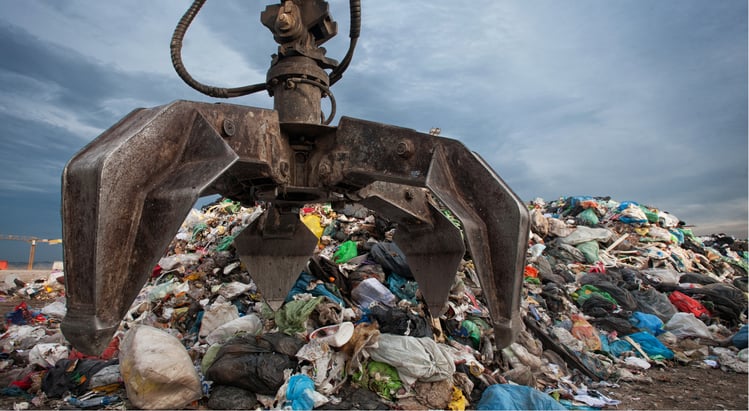Waste Management Supply Chain Strategies to Strengthen the Bottom Line
New opportunities await the waste management industry
Growth projections for the waste management industry point to new opportunities, with the US municipal solid waste market alone expected to generate $25 billion in revenue by the end of 2024. Growth in this industry is the result of much more than an increasing amount of waste. It is being stimulated by a growing interest and focus on recycling and reuse, new waste treatment technologies, and government guidance and regulation designed to encourage waste reduction and disposal practices. Increased M&A activity in the industry will also pose some challenges as newly-merged companies realize economies of scale and, at the same time, optimize their supply chains and move towards strategic procurement.
The prospect of growth means waste management companies need to step up the pace of embracing new technologies and data-driven strategic procurement, rethink their supply chain relationships, and leverage that technology to effect operational improvements.

Re-evaluating the supply chain
Waste management companies often grow through acquisition and as they grow, procurement becomes more complex and even redundant. It is frequently based on long-standing relationships. Conventional wisdom may hold that these existing relationships, often accumulated haphazardly through personal connections and acquisitions, are not always best for the company‘s bottom line. The truth is, there can be many benefits from working with trusted suppliers who truly understand your business, as long as the relationship isn‘t allowed to stagnate. To ensure the partnership continues to deliver the best value to all parties, it needs to be regularly re-evaluated with a focus on continuous improvement of the supply chain. This may involve a re-bidding process, a careful look a what each supplier brings to the table, along with a more collaborative approach that also examines the value every member of the extended supply chain receives. Internal initiatives do not always succeed in capturing the full potential value, both for the company and for the supply chain partners. A more strategic, centralized procurement process will lead to an optimized supply chain, and a sustainable bottom-line improvement to EBITDA.
Adapting to a changing global landscape
The waste industry is not immune to global concerns, with China and other Asian countries imposing strict controls over accepting waste shipments. Most recently, Malaysia turned back 150 shipping containers of plastic waste to the US, UK, France and Canada, and China banned the import of plastic waste two years ago, which has already caused a ripple effect in global waste management supply chains. Prior to 2018, China processed half of the world‘s exports on plastic, paper and metal waste, but now the industry must take extra measures to seek out alternatives which may include other destinations, or better, implementing newer technology and recycling methods to reduce waste.
Digitization is the key
The industry will undoubtedly see plenty of growth potential over the next few years, but taking advantage of that potential will depend heavily on optimized and more strategic digitally enabled supply chains, an end-to-end digital transformation of operations, and embracing newer, smart technologies to increase profitability. This forward-looking approach is facilitated with our Total Value Optimization methodology, which leverages data and analytics to help waste management companies optimize supply chain and operations, make the best use of newer technologies and deliver the greatest value to customers and stakeholders at the lowest cost to business.
If you would like to discuss any of the points raised in this article, contact us: Email info@mainepointe.com
About Maine Pointe
Maine Pointe, a member of the SGS Group, is a global supply chain and operations consulting firm trusted by many chief executives and private equity firms to drive compelling economic returns for their companies. We achieve this by delivering accelerated, sustainable improvements in EBITDA, cash and growth across their procurement, logistics, operations and data analytics. Our hands-on implementation experts work with executives and their teams to rapidly break through functional silos and transform the buy-make-move-fulfill digital supply chain to deliver the greatest value to customers and stakeholders at the lowest cost to business. We call this Total Value Optimization (TVO)™.
Maine Pointe‘s engagements are results-driven and deliver between 4:1-8:1 ROI. We are so confident in our work and our processes that we provide a unique 100% guarantee of engagement fees based on annualized savings. www.mainepointe.com
